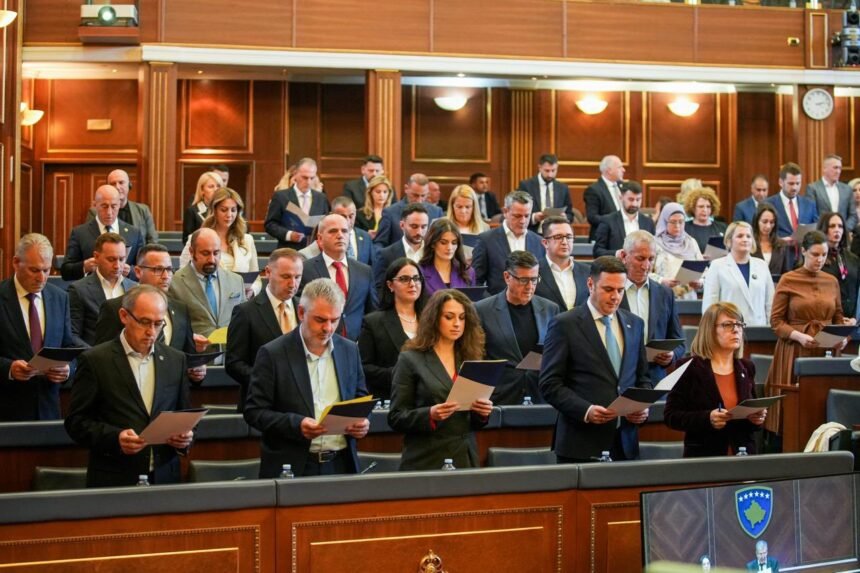The Democratic League of Kosovo (LDK) has sharply criticized Vetëvendosje (VV) for failing to secure the necessary votes to elect the Speaker of the Assembly, saying the Saturday’s two failed attempts prove VV lacks a parliamentary majority.
In a public statement, LDK outlined its position in six key points, accusing VV of attempting to push forward its political agenda without the required 61 votes, calling such efforts a violation of democratic principles.
“Reality is simple: Vetëvendosje does not have the numbers. This cannot be hidden behind procedural acrobatics or parliamentary improvisation,” LDK stated.
LDK Warns Against Constitutional Violations
LDK condemned the actions of VV and warned it would not participate in any process that undermines the constitutional order, democratic procedures, or the free will of elected representatives. It also vowed legal actions against government officials who, despite being certified as MPs, continued to make executive decisions after March 27.
The party criticized VV for applying questionable pressure and political calculations in an attempt to sway deputies. It emphasized that any push forward of a political agenda without a parliamentary majority of 61 votes constitutes a breach of parliamentary rules and democratic order.
Urgent Call for Institutional Stability
In its sixth and final point, LDK stressed the need for urgent institutional stability and full political legitimacy.
“We will not allow the Republic of Kosovo to be blocked for narrow party interests. The only way forward is full respect for the Constitution and the law,” the statement concluded.
Context: Speaker Election Fails Twice
The Kosovo Assembly failed to elect a new Speaker in two rounds of voting on April 19. The failure has raised concerns about a looming political and constitutional crisis, especially given that key cabinet members, now certified as MPs, have not formally resigned or transitioned into their legislative roles, creating a vacuum in executive authority.







